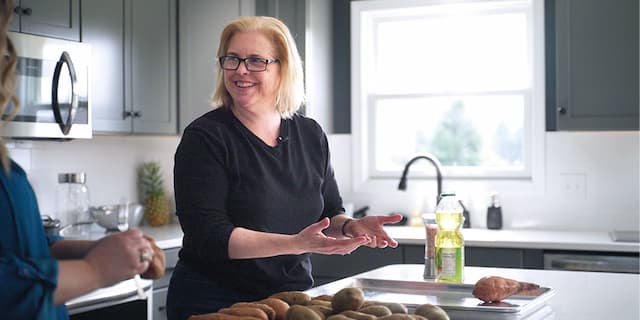Who Do You Ask to be in Your 5:1 Ratio Group for Your Teen - Bravester
This is my Brave Parenting drumbeat. Especially as a 40-year youth ministry veteran. I have given all of my adult life to the spiritual formation of teenagers and this is what I know is the best way to pass on your faith to your teen. You set up your teen with the best adult voices in his/her life. Statistically (which has been repeated in many studies over the past 20 years) the best ratio is five adults to your one teen. You intentionally find those five adults.
I’ve mentioned in other articles here how I love to read these statistical reports. In other articles I’ve broken down the insights for you so you don’t have to read those reports. Here is one short video that supports this 5:1 ratio statistically. The correlation is undeniable.
You’ve been convinced that you do need to intentionally find these five people for your teen. But who do you choose? Do you choose the paid youth pastor? Do you choose your crazy brother, that favorite uncle?
I’ll let the statistical numbers guide you. These come from a Springtide Research report called The State of Religion & Young People 2020: Relational Authority. As you read each one, pause and think back to when an adult did this for you when you were between the ages of 15 and 25.
- 83% say they are more likely to take advice from someone who cares about them.
- 79% say they are more likely to listen to adults in my life if I know they care about me.
- 65% say a person’s expertise doesn’t matter if they don’t care about me.
- 84% say they will trust someone who remembers what was shared.
- 82% say they will trust someone who will take the time to hear.
- 78% say they feel listened to when people show they understand what they’ve been through.
- 80% say they feel listened to when people show they care about them.
- 91% say an interaction is meaningful when they feel like they are being listened to.
- 81% say they feel listened to when people seem genuinely curious about what they have to say.
- 73% say they feel listened to when people ask questions about what they’ve had to say.
- 80% say they feel listened to when people remain present and engaged as they speak to them.
- 75% say they feel listened to when they are allowed the space to say what they need to say without anyone else interjecting.
- 78% say they feel listened to when people remember what they’ve said after some time has passed.
- 82% say they feel listened to when they see action taken after making a suggestion or complaint.
- 79% say they trust someone who shares things about their life.
- 80% trust those who understand their lived experiences.
- 87% say they trust someone who tells them what is going on and makes they feel included.
- 85% say that their trust in someone grows when that person takes action that responds to that young person’s needs.
- 82% say they trust someone who does what they say they are going to do.
- 83% say they trust someone who takes action to fix things when they’ve caused harm.
- 80% say they trust someone who admits when they are wrong.
- 87% say they trust adults who take time to foster relationships.
- 81% say they will trust someone whom they believe cares about them.
- 84% say they trust someone who not only knows a lot but also uses that knowledge to help them.
- 80% say they are more likely to trust someone who knows what it’s like to experience what they’ve been through in their own lives.
As you read through this list, did you remember those adults who helped you during this age? Maybe one or two you haven’t thought about in quite a while? Take a moment to write down the names of those people you thought of. Put this list some place special, like your Bible or your journal.
How about going a step further and Google those people. Can you find an address for them? If so, send them a thank you note sharing what you have remembered. (I’ll make it easy for some of you. My address is 309 Commerce Street, Occoquan, Virginia 22125.)
As you read through all of those statistical numbers, did people who you know currently also pop into your head? People who you think you might ask to be part of this 5:1 ratio? Write those names down too. Take the time to pray over those names. Then ask these people.
The choice doesn’t always have to be the paid youth pastor. Because we are “paid” to have this authority, we are too often seen as “just doing our job” by being nice to them. Plus youth pastors come and go too frequently. They might not be around from when your teen is 15 to the age of 25.
Don’t shy away from asking someone who lives five states away. If this person’s name popped up and continued to pop up over your extended prayer time, ask. Technology allows for deep conversations. Sometimes teens actually prefer text conversations over face-to-face conversations. Let the two of them figure out how they will talk. You just ask this person and give them permission to nosily pursue.
Ask these people to nosily pursue. Trust who you are asking to do that well.
Don’t let your own parenting insecurity get in the way. You are doing one of the best parenting moves by intentionally setting this up. Pat yourself on the back for that. Give yourself some peace that you are not the only one who cares about the faith formation of your teen.
Read here about the research findings that those who are religious are flourishing–in this crazy culture moment. Parent, you have a lot to do with this. I’m sure your heart’s prayer is for your teen to take his/her faith decision into adulthood and to live a life that is flourishing.
Are you inspired? Did these real stats inspire you? I hope so.




